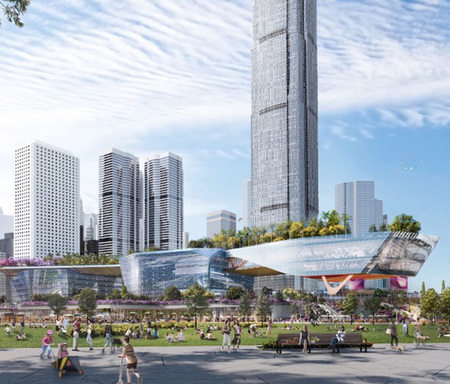
Asia’s REITs roar in 2021
Asian real estate investment trust (REIT) sponsors have not been deterred by the pandemic, with a host of new floats this year and more planned. REITs bring stability and fresh institutional capital to developing real estate markets, but also provide a stable, income-generating investment for individuals.
Asian real estate investment trust (REIT) sponsors have not been deterred by the pandemic, with a host of new floats this year and more planned.
Singapore has cemented its position as the prime location for cross-border Asian REITs, while REITs are being launched in new markets all over the region. Simon Smith, head of Asia Pacific research and consultancy at Savills, says: “REITs bring stability and fresh institutional capital to developing real estate markets, but also provide a stable, income-generating investment for individuals.”
In late November, Daiwa House Logistics Trust, a Singapore REIT which owns Japanese logistics assets, raised $423m in an initial public offering (IPO) which was considerably oversubscribed. Even with stock markets reeling from concerns about the new Omicron COVID-19 variant, the new trust’s units rose slightly in its first day’s trading.
The REIT was Singapore’s largest IPO for a year, however, Digital Core REIT, sponsored by data centre giant Digital Realty, is set to raise $600m in early December. The REIT will own data centres in the US and Canada.
The Asia Pacific Real Assets Association (APREA) believes that Asia Pacific REIT market capitalisation, $340bn, could more than triple over the next decade to rival that of the US, $1.3 trillion. A total of 20 REITs is expected to have launched across the region by the end of this year.
That number was swelled by the IPOs of nine China REITs, the first in that nation, in May this year. China’s REITs are rather different from the model elsewhere in the world, in that they are debt securitisations and that they are limited (at present) to infrastructure and logistics assets. However, it is expected that REITs will be allowed for other sectors over time, with affordable housing a likely candidate in the near future.
While it is early days for REITs in China, Savills expects them to take some of the debt-fuelled heat out of the market. “When China expands the scope of REITs to include other commercial asset types, it can help developers pay down debt to more sustainable levels, reducing interest rates and debt servicing costs,” says James Macdonald, senior director, research, China in Savills latest Horizons report. “If developers already have manageable debt levels, it will enable them to recycle capital into new projects and make long-term strategic investments.”
India’s first REITs have performed successfully since the first was launched in 2019; while there are only three REITs in the market, observers expect steady growth, with backing from international private equity investors.
The Philippines has seen a flurry of REIT listings this year, with the largest – RL Commercial REIT – raising $471m in September. There are now five Philippines REITs, sponsored by some of the country’s largest developers.
Smith says: “Developing Asian real estate markets will benefit from the introduction of REITs and will be encouraged by successful IPOs and performance, even during the pandemic.”
Outside of Singapore, Japan and Australia have the largest and most mature REIT markets in the region, but have not been as active this year. Nonetheless, an Australian healthcare REIT raised A$650m in August, while in Japan, there are now 62 REITs with a total market capitalisation of more than ¥20 trillion ($175bn).
“There is still plenty of ‘REITable’ real estate in developed Asia Pacific markets,” says Smith. “It is notable that a number of the most significant IPOs have been in emerging sectors such as healthcare, logistics and data centres. These new or relatively new sectors will continue to be popular with investors.”
Further reading:
Savills Horizons report
Contact us:
Simon Smith



